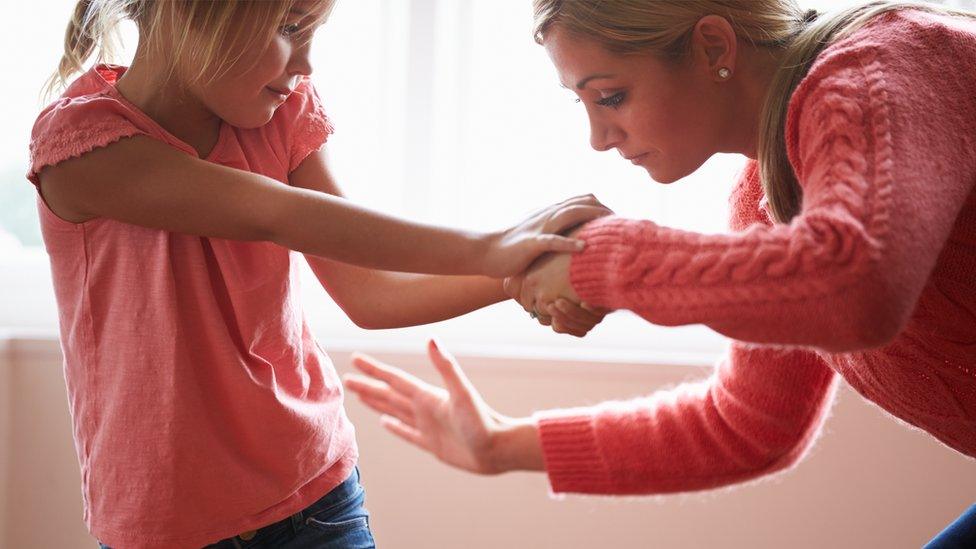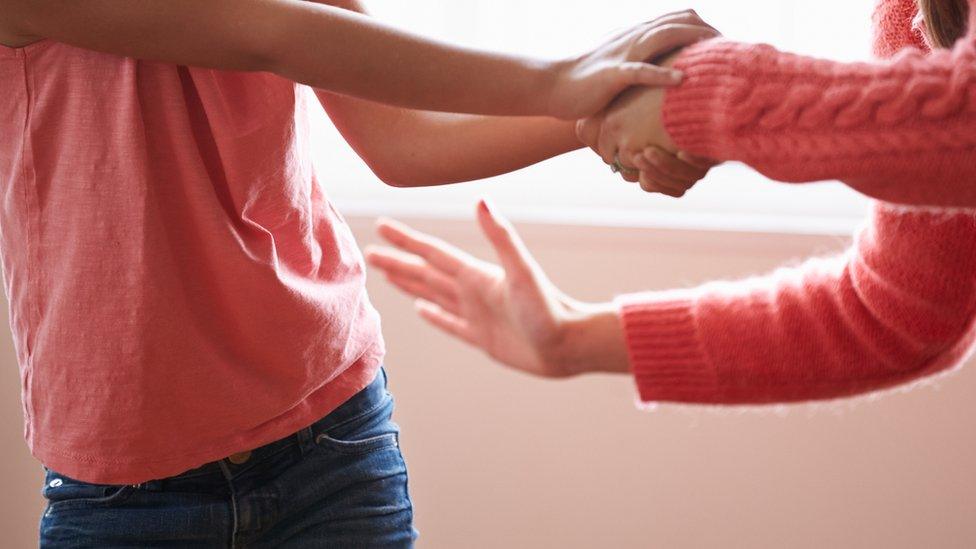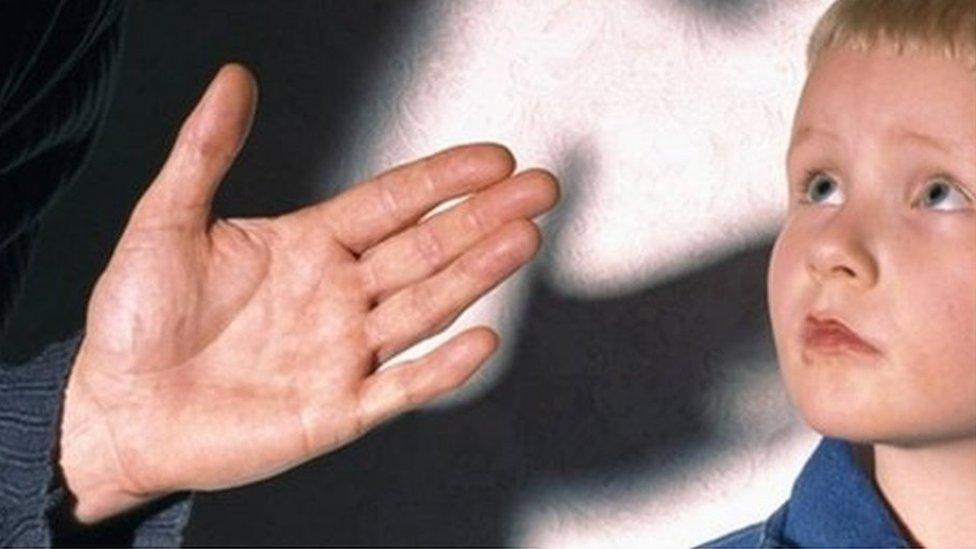Why I think smacking children simply doesn't work
- Published

Vivienne Laing: "Smacking is morally wrong and doesn't work"
The smacking debate is increasingly hitting the headlines. Earlier this month, Scotland announced plans to make the practice illegal, and Wales is amid a consultation.
BBC Wales News has spoken to leading voices on the issue - one in favour of smacking and one against. Here, Vivienne Laing, policy and public affairs manager of NSPCC Cymru, explains why being smacked as a child turned her against physical punishment.

Perhaps the main reason I believe so passionately in positive parenting and not smacking is because, like so many of my generation, I was smacked as a child.
Five decades on, I still clearly remember being smacked and sent to bed, feeling it was so unjustified.
I was threatened with the belt, too, again a common punishment in the 60s and 70s, and although I never actually received it, I remember being afraid.
Now, I myself am a mother of four.
My children - aged 26 to 33 - have long since fled the nest, but I never used physical punishment to discipline them, except just once.
My son was six and playing up, so eventually, after I'd thought it through, I put him over my knee and smacked him.
Then I asked him, "Will you do it again?" and he said "Yes." He was even more defiant, and that's my point - beyond any moral rights and wrongs, it simply doesn't work.
Of course, looking back, I suppose that was a considered smack, but most parents don't get that far; they just smack out of sheer frustration and anger.
I understand how it happens and have immense sympathy for stressed parents.
Whenever I see a mother struggling in a supermarket queue, I try and help by engaging the child.
And if I saw a mum smack her child in a street, I suppose I would try and talk to her.

Vivienne Laing of the NSPCC has "immense sympathy" for stressed parents
But what helps is knowing that most people agree with me, especially the younger generations.
Most young parents already use positive parenting techniques and have made a conscious decision not to use physical punishment to discipline their children.
It is something that belongs to a different age.
Welsh Government research, too, shows that, of the parents who do smack as a last resort, only 5% truly feel comfortable with it.
In most cases, if they lash out, they are wracked with guilt and regret afterwards.
Even in highly-charged situations, such as when a child runs into a road, I would never recommend smacking, but just grabbing them to stop them doing it.
Children can sense fear, and it can be reinforced by words - there is no need for further physical punishment.
Instead, clear boundaries should be set, and the use of sanctions, such as sending them to their room or docking pocket money.
Much has been made in the media of this supposed "smacking ban".
But it is simply about giving our smallest and most vulnerable members of society the same legal rights as adults by removing the defence of "reasonable punishment" against assault.
Any change in the law won't mean parents will be locked up, as other countries have shown; for a start, cases have to be in the public interest, and there has to be significant harm done to any child before it is drawn into the protection system.
But a law change will bring about a change in attitude on physical punishment.
Sweden, for instance, banned corporal punishment over 30 years ago.
And over that time, parents have reported a steady decrease in its use, particularly of severe or frequent punishment.
Parental support for such punishment is now at a record low - below 10%.
Of course, like domestic abuse, we will never fully eradicate smacking.
Even in Sweden, physical punishment is still used by some parents.
But a good law which protects children, supports parents and fulfils human rights obligations is the right step forward.
The NSPCC is campaigning strongly for this law to come into force.
But regardless of whether it does, I think more and more parents will come to the independent conclusion that not only does smacking not work, it's wrong.
- Published17 July 2017

- Published27 June 2017

- Published8 January 2017
